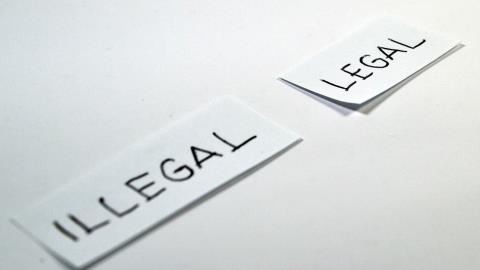The session, performed by the Authorities-backed UK Jurisdiction Taskforce (UKJT), goals to offer readability to the market as to the forms of digital safety fashions which English regulation will assist.
Plenty of jurisdictions, together with Luxembourg and France, have launched tailor-made legislative frameworks to facilitate the business use of blockchain and DLT underneath their respective authorized programs. Nevertheless, no related statutory regime has been launched within the UK and there may be some notion out there that English regulation could also be comparatively much less supportive of digital securities.
The session goals to deal with these issues and is searching for enter on any materials problems with concern to stakeholders in relation to the issuance and switch of digital securities underneath English non-public regulation.
Sir Geoffrey Vos, Chancellor of the Excessive Court docket and chair of the UKJT feedback: “We recognise many specialists and members of the general public within the authorized, digital and monetary sectors have views on this. This session permits them to have their say on this necessary topic and I urge as many individuals as doable to make use of this chance to share their views with the UKJT.”
The general public session opened on 29 July 2022 and can shut on 23 September 2022.
Individually, The Legislation Fee of England and Wales has revealed a session paper which comprises provisional regulation reform proposals to make sure recognition and safety of digital property, together with crypto-tokens and cryptoassets. The session follows calls from the UK Authorities to make sure that laws can accomodate the know-how because it evolves.
The session paper examines how present private property regulation does — and may — apply to digital property: “As a result of they aren’t tangible, some digital property have many various options to conventional bodily property and to different intangible issues that may appeal to property rights. Their distinctive qualities imply that many digital property don’t match simply into historically recognised non-public property regulation classes or definitions.”
Professor Sarah Inexperienced, the regulation commissioner for business and customary regulation, feedback: “Digital property corresponding to NFTs and different crypto-tokens have advanced and proliferated at nice pace, so it’s very important that our legal guidelines are adaptable sufficient to have the ability to accommodate them. Our proposals purpose to create a powerful authorized framework that provides better consistency and safety for customers and promotes an setting that is ready to encourage additional technological innovation.”
The session closes on 4 November.,Authorized specialists within the UK have opened a public session on the legislative modifications required to assist the issuance and switch of digital securities on blockchain and DLT programs.,









